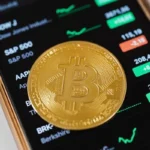Introduction
Receiving unexpected calls from unfamiliar numbers can be unsettling. One such number, 206-914-4471, has raised concerns among many. This article aims to shed light on this number, its potential origins, and how to protect yourself from possible scams. From understanding the area code to exploring the common types of scams associated with such numbers, this guide will help you stay informed and secure.
What Is 206-914-4471?
The number 206-914-4471 originates from the 206 area code, which covers Seattle, Washington, and surrounding regions. Area codes are assigned to geographical locations, and calls originating from these areas are often assumed to be legitimate. However, scammers use a technique called caller ID spoofing, which allows them to disguise their true location and identity. This means that even though the number might appear to be local, it could be a scammer from anywhere in the world.
In the next sections, we’ll explore why scammers target local area codes and how they make use of them to deceive unsuspecting individuals.
Why Do Scammers Use Local Area Codes?
Scammers are known to employ local area codes to increase the likelihood that you’ll answer the call. If you see a familiar area code on your caller ID, you’re more likely to pick up the phone, believing it’s a local business or friend. This tactic plays on your trust, making you less cautious and more susceptible to their fraudulent schemes.
Furthermore, scammers often use caller ID spoofing to make their calls appear legitimate. By mimicking a local number, they exploit the natural tendency of individuals to trust familiar area codes.
How to Spot a Scam Call from 206-914-4471
While it can be difficult to immediately identify a scam, there are a few signs you can look for that might indicate the call is fraudulent. Here are the common red flags to watch out for:
1. Unsolicited Calls
Scammers typically call people without prior contact, making unsolicited offers or demands. If you receive a call from 206-914-4471 offering something you didn’t ask for, it’s a strong sign that the call could be a scam.
2. Pressure to Act Immediately
Scammers often create a sense of urgency to pressure you into making decisions quickly. They might claim that your account has been compromised, your benefits are at risk, or that you owe money that needs to be paid immediately.
3. Requests for Personal Information
Legitimate organizations will rarely ask for sensitive information like your Social Security number, credit card details, or bank account information over the phone. If the caller asks for personal details, it’s a major warning sign.
4. Robocalls
Robocalls, or automated calls, are another common tactic used by scammers. These calls may contain pre-recorded messages that sound official but are designed to manipulate or deceive.
Common Scams Linked to This Number
Reports suggest that calls from 206-914-4471 may be linked to various types of scams. Below are some of the most common ones associated with similar numbers:
1. Impersonation of Government Agencies
Scammers frequently pose as officials from government agencies like the IRS or the Social Security Administration. They may claim that you owe back taxes, or your Social Security benefits are at risk, and they ask you to confirm personal information or make immediate payments.
How It Works
- Caller Claims to Be from a Government Agency: The caller might say they are from the Social Security Administration or IRS.
- Threatening Language: The caller may threaten legal action or arrest if you don’t act quickly.
- Request for Payment: They may demand payment by gift cards, wire transfers, or other untraceable methods.
2. Robocalls
Robocalls are automated phone calls that deliver pre-recorded messages. These calls might promote fraudulent products or services, such as fake debt relief programs, fraudulent insurance policies, or even fake charity donations.
How It Works
- The call will typically start with a message such as, “You’ve won a prize,” or “Your account has been compromised.”
- After a few seconds, you may be prompted to press a number to speak with someone or to enter personal information.
3. “One-Ring” Scams
In this scam, the phone rings only once before the caller hangs up, hoping the recipient will call back. When you do, you are charged a high per-minute rate for the call.
How It Works
- You receive a call from 206-914-4471 that rings only once.
- When you call back, you’re connected to a premium-rate phone line that charges exorbitant fees.
4. Debt Collection Scams
Some scammers pretend to be debt collectors, claiming that you owe money on a loan or bill. They will threaten legal action if you don’t pay immediately.
How It Works
- Scammer poses as a debt collector.
- They pressure you into paying a non-existent debt through untraceable methods.
How to Protect Yourself from Scams
Here are some steps you can take to protect yourself from scams originating from 206-914-4471 and similar numbers:
1. Do Not Answer Calls from Unknown Numbers
One of the simplest ways to protect yourself is to avoid answering calls from unknown or suspicious numbers. If the call is legitimate, the caller will leave a message, and you can call them back using a verified phone number from their official website.
2. Do Not Share Personal Information
Never give out personal information such as your Social Security number, bank account information, or passwords over the phone, especially if you didn’t initiate the call. Scammers will often ask for such details under the guise of verifying your identity.
3. Use Call-Blocking Technology
Many smartphone apps and services offer call-blocking features to help you identify and block fraudulent calls. Consider using apps like Truecaller, Hiya, or your phone’s built-in spam protection features.
4. Report Suspicious Calls
If you receive a suspicious call from 206-914-4471, report it to the authorities. In the U.S., you can file a complaint with the Federal Trade Commission (FTC), your state’s attorney general, or the National Do Not Call Registry.
5. Verify the Caller
If someone claims to be from a legitimate organization, hang up and call the organization back directly using a verified phone number from their official website. Do not rely on the number provided by the caller.
6. Set Up Two-Factor Authentication
For added security, set up two-factor authentication on your online accounts. This extra layer of protection will help keep your accounts safe from unauthorized access.
What To Do If You’ve Fallen Victim to a Scam
If you suspect that you’ve fallen victim to a scam originating from 206-914-4471, it’s important to act quickly. Here are the steps you should take:
1. Contact Your Bank or Credit Card Provider
If you’ve shared financial information, contact your bank or credit card company immediately to report any suspicious activity and take steps to protect your accounts.
2. Monitor Your Accounts
Keep an eye on your bank and credit card accounts for unauthorized transactions. If you spot anything suspicious, report it to your bank right away.
3. File a Report
File a report with the Federal Trade Commission (FTC) or your country’s equivalent consumer protection agency. This will help authorities track and shut down scammers operating in your area.
Conclusion
While 206-914-4471 might seem like an ordinary call from a local area code, it’s important to remain cautious. Scammers are increasingly using local numbers and caller ID spoofing to deceive people. By staying vigilant, verifying the caller, and reporting suspicious calls, you can protect yourself from falling victim to fraud.
Always remember to trust your instincts. If something doesn’t feel right, hang up, and take the necessary steps to verify the caller’s identity. Protecting your personal information and remaining informed is key to staying safe in today’s world of scams and frauds.
FAQs About 206-914-4471
What is 206-914-4471?
It’s a phone number from the 206 area code (Seattle, Washington), often used by scammers who spoof their caller ID.
Is 206-914-4471 a scam number?
Yes, it’s commonly reported as a scam number for frauds like government impersonations and robocalls.
How can I block calls from 206-914-4471?
Use call-blocking features on your phone or third-party apps like Truecaller.
What should I do if I receive a call from 206-914-4471?
Do not share personal info. Hang up and verify the caller’s identity using an official contact number.
How can I report a scam call from 206-914-4471?
Report it to the FTC, local consumer protection agencies, or the National Do Not Call Registry.
Can scammers use local numbers to trick me?
Yes, scammers often spoof local numbers to appear legitimate. Always be cautious of unknown calls.







